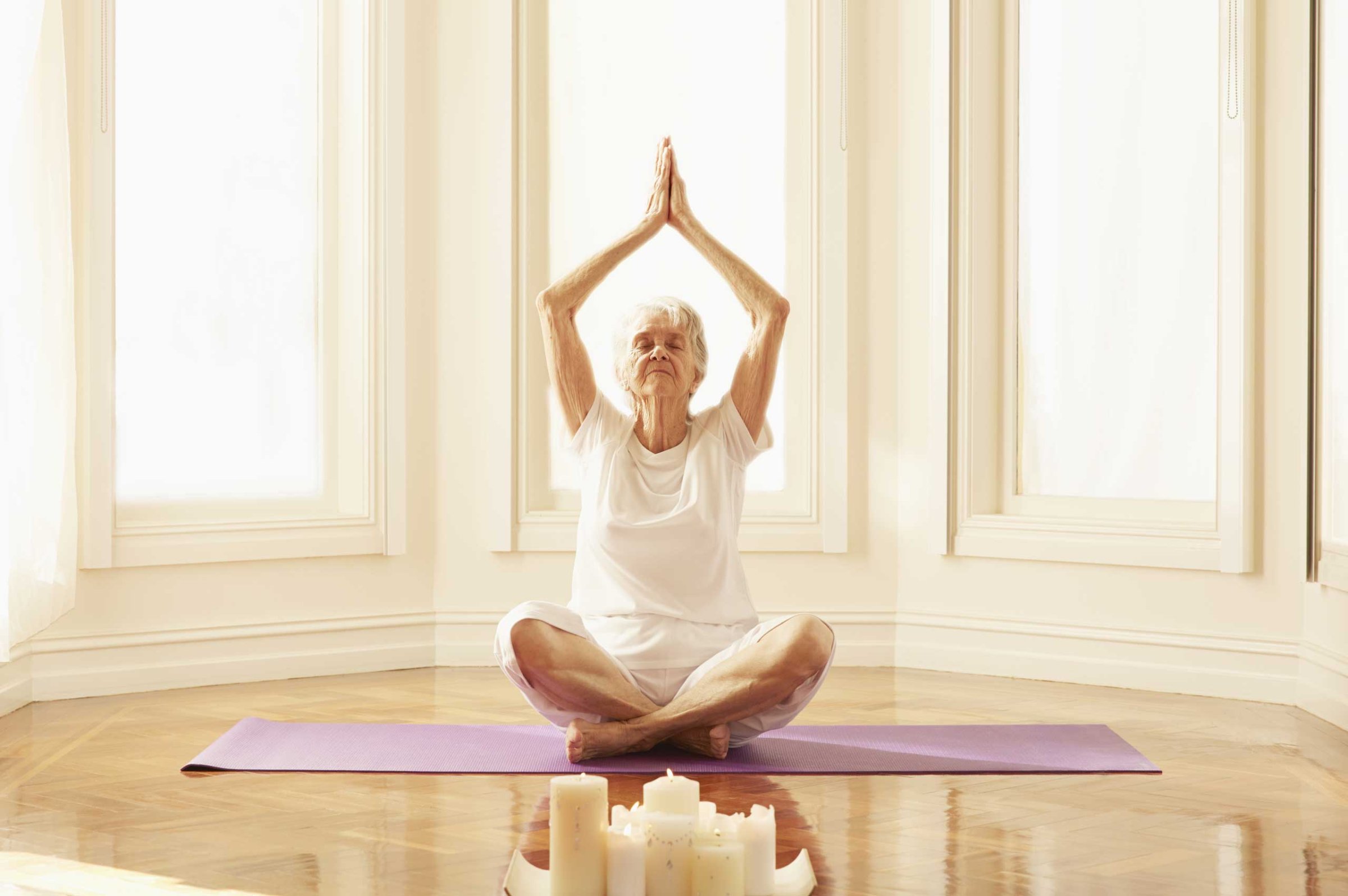
For many older adults, the thought of stepping into a yoga class swarming with yogis more flexible than Gumby might provoke anxiety. But the practice itself may be just the antidote the over-60 set needs, suggests a recent review of studies about relaxation exercises. Those who did yoga and other calming activities saw greater reductions in their anxiety and depression than people who didn’t.
The body of literature on yoga’s relaxation benefits spans all kinds of people, but the authors thought adults aged 60 and older deserved their own analysis. Up to 40% of older adults report anxiety, they note, and anywhere from 15-20% of the elderly experience depression. So in the review published in the journal Aging & Mental Health, researchers scrutinized 15 studies—12 of them randomized controlled trials—from the past two decades that looked at different methods of relaxation. They gauged the effectiveness of six techniques: yoga, listening to music, tensing and relaxing different groups of muscles, massage therapy and stress management training.
MORE: Is Bikram Yoga Safe?
The most effective ways to alleviate depression were yoga, the music intervention and the muscle tensing and relaxing exercise—called PMRT, for progressive muscle relaxation training. The music and yoga interventions were the best for anxiety.
Yoga had the strongest staying power. Positive effects from the stretching, breathing and meditation exercises stuck around six months later in older adults. “It could help counterbalance the negative effects of ageing, improve physical functioning, postpone disability, decrease morbidity and mortality, stimulate the mind, and increase hope, reducing the risk of anxiety and depression,” the study authors write.
MORE: 15 Ways Exercise Makes You Look and Feel Younger
And good vibes from PMRT lasted 14 weeks after the intervention ended. “It is believed that the PMRT has a tranquilising effect, triggers a sense of peacefulness, helps participants retreat mentally from their problem and curtails negative thoughts, reducing depressive symptoms,” the authors write.
The most effective intervention, of course, is the one you enjoy doing—and these results suggest that it’s never too late to find your favorite way to unwind.
More Must-Reads from TIME
- Cybersecurity Experts Are Sounding the Alarm on DOGE
- Meet the 2025 Women of the Year
- The Harsh Truth About Disability Inclusion
- Why Do More Young Adults Have Cancer?
- Colman Domingo Leads With Radical Love
- How to Get Better at Doing Things Alone
- Michelle Zauner Stares Down the Darkness
Write to Mandy Oaklander at mandy.oaklander@time.com